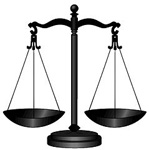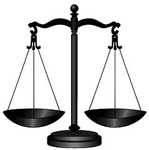In Brazil, Truth Without Consequence
Brazilian President Rousseff Sanctions Truth Commission and Data Access Bills

The bills are under the umbrella of the 1979 Amnesty Bill which protects torturers and guerrillas from prosecution.
Brazilian president Dilma Rousseff on Friday signed into law the creation of a commission to investigate human rights abuses committed during military dictatorships with the purpose of strengthening democracy but ‘leaving aside all forms of revenge’.
The bills are under the umbrella of the 1979 Amnesty Bill which protects torturers and guerrillas from prosecution.
“Brazil will find itself but with no revenge spirit. This law is not a process of revenge, but the construction of truth and memory so we can have a country which is more fair, equal and mainly more democratic”,
said Ms Rousseff during the ceremony in which the so called Truth Commission was institutionalized.
The group is made up of seven people named by the president and will have two years to investigate human rights’ crimes committed between 1946 and 1988, a period which includes two military interruptions.
However the Commission is not empowered to determine criminal responsibilities because Brazil’s Supreme Federal Tribunal last year ratified the 1979 amnesty, dictated during the last military government and which grants protection from prosecution to torturers and those who took arms against the last military dictatorship which lasted from 1964 to 1985.
It is believed 200 people disappeared during that period for political motives, while thousands of activists and militants were arrested and tortured, including a student named Dilma Rousseff.
The investigation goes back as far as 1946, when the late 1945 military coup against President Getulio Vargas who was ruling the country as a populist dictatorship.
The military interruption lasted until 1951 and was less violent that the 1964/1985 regime which applied a systematic policy of eliminating all left wing or believed to be left wing dissidence.
However the period extends until 1988 which was when the current Brazilian constitution was sanctioned.
Rousseff said that knowledge of the truth is crucial to prevent the repeat of torture, killings, disappearances and political arrests that “stained the history of Brazil”.
“The truth is of interest of the new generations. The young that today enjoy the right to freedom must know that many fought and died for that precious freedom”
said Rousseff who suffered torture in the seventies to the hands of the political police.
“Silence and forgetfulness are always a great threat for democracy, and so far we have only had access to information under an arbitrary regime of censorship and repression”.
At the same act President Rousseff sanctioned the bill which regulates access to all government documents and that will only retain undisclosed information of personal nature or that refer to State security.
The bill impedes keeping secret any information or document which represents an attack or abuse of human rights which was described by the Brazilian president as “a new democratic conquest” and evidence of her government’s commitment to transparency.
The ‘ultra-secret’ documents can be kept undisclosed for 25 years with the possibility of a similar 25 year extension, while the so called ‘secret” with have a 15 year ban and the ‘reserved’, a five year limit.
“The law which grants citizens access to data and the Truth Commission will remain for ever in Brazilian history and enshrine Brazil at a privileged level, guaranteeing the subordination of the State to human rights”,
underlined President Rousseff.
Source: MercoPress
Read:
Argentina Gives 12 Ex-Officers Life Terms for Murder, Torture in ‘Dirty War’
Uruguay Lawmakers Revoke Dirty War Amnesty







Comments
In Brazil, Truth Without Consequence — No Comments